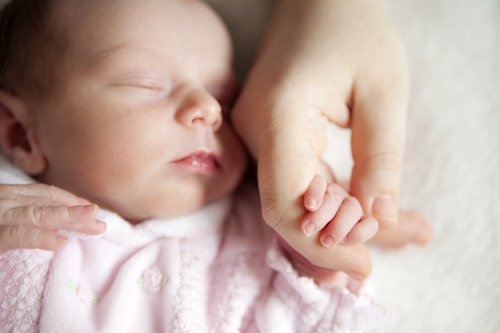Postpartum Recovery: Why Many Women Have a Hard Time


Written and verified by the psychologist Valeria Sabater
Postpartum recovery, or puerperium, is something more than the time of seclusion that a woman’s body needs to get back to its former state. It is also a period of adaptation, often characterized by overwhelming emotions that spill over into tears.
To be clear, we are not talking about cases of postpartum depression; just regular postpartum recovery.
To begin with, many mothers go through unexpected procedures during childbirth (such as cesarean section).
There are physical wounds that need to heal. Your body is bruised, your abdomen still swollen. You are facing a new set of fears now, with this delicate, fragile creature totally dependent on you.
The postpartum period is not easy. Every woman will get through it in the way that is best and healthiest for her. These first few weeks are a time to get back in touch with your body and bond with your baby. Your emotions may go up and down, however, and your surroundings will not always be on your side.
Physical and emotional recovery
There is so much to prepare before a child is born. Mom and dad will have planned out what their room will look like, who will be in charge of what and how they will raise this new member of the family.
Among these long-term projects, we very rarely think about the more pressing short term challenges. Postpartum recovery is one of them.
You have welcomed your child into the world, and now it’s time to face the reality of a body that is empty again. A body that is hurt, and a figure that you may not recognize.
Let’s take a closer look.

Your postpartum recovery may be different from mine
Your best friend may have had a dream birth, one of those where the baby practically pops out unassisted. Where everything goes according to plan, and there is plenty of time for skin-to-skin contact with the newborn.
However, other births are the complete opposite. The baby arrives early, a cesarean is necessary, along with a few weeks in the incubator. Nobody is prepared for this. And in these cases, the postpartum period can be sensitive and even traumatic.
Every woman experiences the puerperium differently. Despite this, we are often surprised to see how quickly celebrities get their figure back.
We see photos on social media of new moms showing off an almost flat stomach. And here we are, looking almost as if we were still in the third trimester.
Postpartum recovery is a time of hormonal upheaval
You long for calm, but your body is still changing. It hurts, of course. You want to relax, but you’re more worried about whether or not your baby is eating, sleeping, breathing, peeing, moving, or whether they have colic.
And as if this wasn’t enough, your hormones are going through a massive upheaval.
- In the days after birth, levels of estrogens and progesterone drop. Don’t worry, though, they will go back to normal once your ovulation cycle returns.
- At the same time, levels of prolactin rise. This has a fundamental role: promoting milk production and generating oxytocin. This hormone, the same one that sets off your contractions during labor, now has a very different purpose. Thanks to prolactin, your uterus contracts. This helps to heal the wound left by your placenta when it detached, avoiding hemorrhaging.
The phases of postpartum recovery
We all know that the postpartum period is a time of recovery after birth, and that it is different for everyone. However, there are phases that are more or less constant.
- Immediate puerperium: the first 24 hours after the baby is born.
- Early or mid puerperium: from 2 to 7 days after birth. Over this time, the genitals begin to return to normal. Lochia appear and breast milk comes in.
- Late puerperium: from the 11th to the 40th or 45th day after the baby’s birth. At this stage, the uterus has finished contracting, and menstruation may return if the mother is not breastfeeding.
In some countries, such as Canada, however, experts talk about an extended puerperium, which can last up to 8 or 12 months. After all, women’s bodies and their emotions sometimes need several months to go back to normal.

Postpartum recovery and your right to express your feelings
It’s not just hormones. Not everything is chemical. You are facing a new reality, which has just hit you hard. Even though you are tired and sleep deprived, something in you is pushing you to be alert and aware at all times. These are unknown sensations, strange but also comforting.
You are a mother, and that is both exciting and frightening. “Am I doing it right?” That question pops up in your mind again and again, but you put it aside as you hold your child in your arms.
Your body is wounded, you are wearing giant pads, loose clothes, you don’t look your best.
You might be wondering if you will ever be the same as before. These are doubts that come and go. From time to time you might need to let it all out and cry. So what?
You are happy, with that new life in your arms. Postpartum recovery will soon be over, but this is just the beginning for you.
This text is provided for informational purposes only and does not replace consultation with a professional. If in doubt, consult your specialist.



